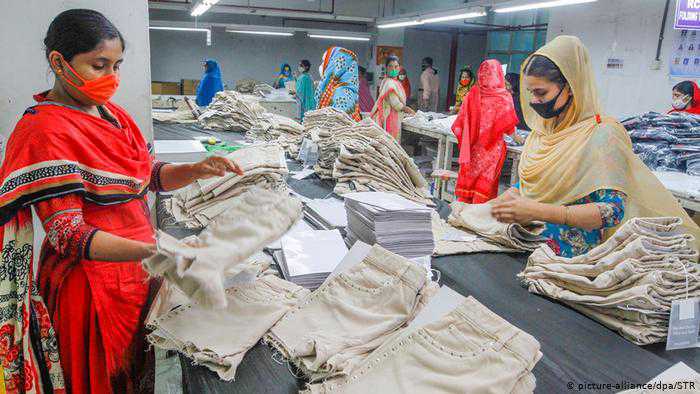Coronavirus: Economy straight down, poverty up in Bangladesh

Image collected
The global health crisis due to COVID-19 has hit Bangladesh's economy hard and jeopardized the country's extraordinary achievements in poverty decrease. From this backdrop, Dhaka is defined to announce its twelve-monthly budget.
People in his spot call Imran Hossain a great all-rounder. The daily wage laborer can fix electric lines, clean the drainage clogs or cut wood to repair the roofs. His daily income ranged from 300 to 500 taka (€3-€5/$3.50-$5.90).
But, since mid-March, Hossain has already established no work and no cash to feed his wife and two kids. "Coronavirus has spread right here like anything. Folks are scared and do not call me for just about any job," Hossain advised DW. Hossain lives in Cumilla, an area that lies about 100 kilometers (62.1 miles) to the southeast of the administrative centre Dhaka and is among the regions hit hard by the massive health crisis due to the novel coronavirus.
Bangladesh has up to now recorded 71,675 COVID-19 circumstances, with the condition claiming 975 lives as yet.
A recently available study conducted by several local NGOs figured every three out of five persons in the region are at high risk of facing financial and overall health vulnerabilities. "Those persons who are losing their careers are from underneath of the pyramid," explained KAM Morshed, a specialist working for the neighborhood NGO BRAC.
More people have become poor
According to the analyze, among the 100.22 million persons at risky of economic and overall health vulnerabilities, 53.64 million are really poor. These people earn less than 160 Taka (€1.7, $1.9) a day. "In a more recent review conducted until May 26, more than half of the extreme poor persons told they have run out of money," Morshed told DW.
Due to a extreme constriction of economic activity as a result of the COVID-19 pandemic, more and more people just like Hossain are going down the intense poverty lane.
In line with the South Asian Network in Monetary Modeling (SANEM), Bangladesh's poverty rate might double to 40.9% from that ahead of the onset of the pandemic. Morshed said, "The indegent and vulnerable people are becoming more vulnerable. Thus we expect the inequality in world to increase."
People like Hossain are also area of the informal sector, which accounts for almost 80-90% of the jobs found in Bangladesh. The pandemic provides hurt them the virtually all. Between March and could, the average family salary subsided by as many as 74%.
Read more: COVID-19 lockdown increases domestic violence in Bangladesh
"If these people come out of their homes out of hunger, there is absolutely no scope for physical distancing and hygiene maintenance," former business lead economist of the World Bank's Bangladesh business office Zahid Hussain told DW.
Another study on countrywide foodstuff security by BRAC revealed that through the 45-moment lockdown period between March and could, the country's farmers faced a damage worth 565.36 billion taka (€5.9 billion, $6.66 billion).
"The World Food Plan has said that regardless if the world makes surplus food this season, due to the disruption in trade and distribution, many countries are at threat of famine," Hussain said.
Source: https://www.dw.com
Tags :
Previous Story
- PPE a silver lining for ailing garment industry
- IMF halves Bangladesh GDP growth forecast with recovery...
- Hopes still abound for financial turnaround
- Missouri's tourism industry struggling; Governor turns to Springfield...
- FMCG companies tuning products to cash-strapped consumers’ means
- What will happen when overseas employment and remittance...
- Is Southeast Asia's drug trade too large to...
- Rescue package needed to salvage aviation industry